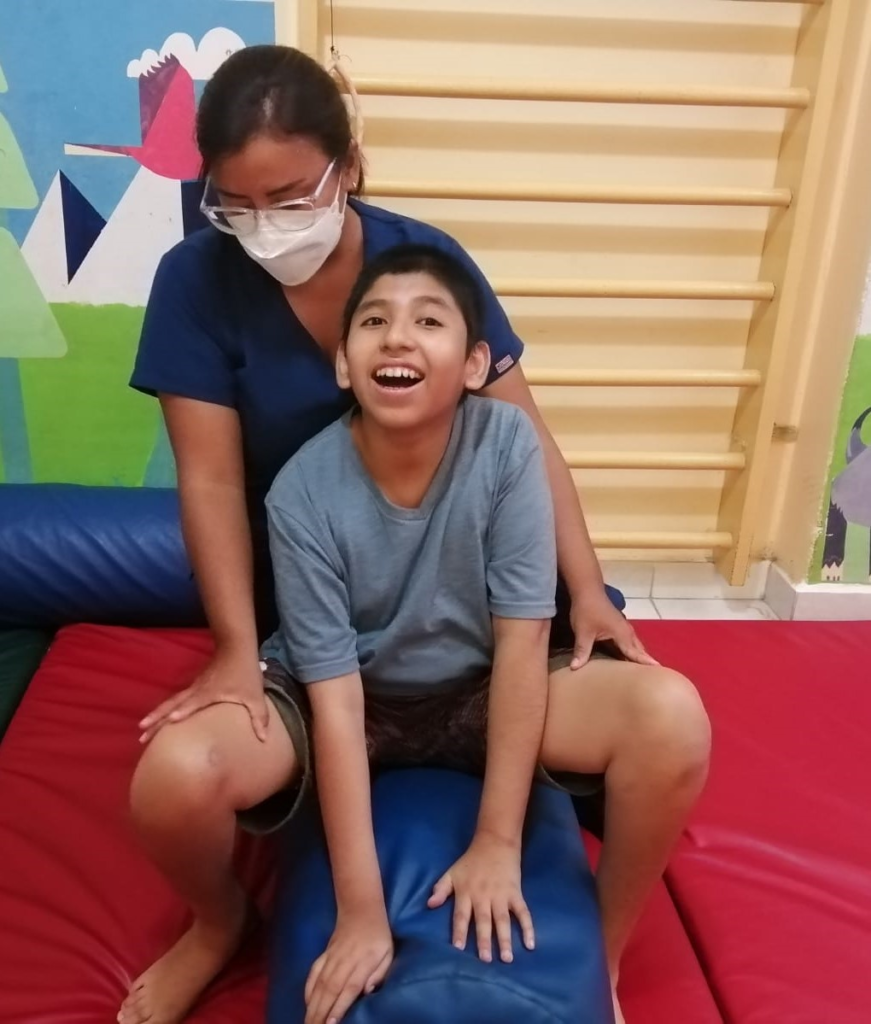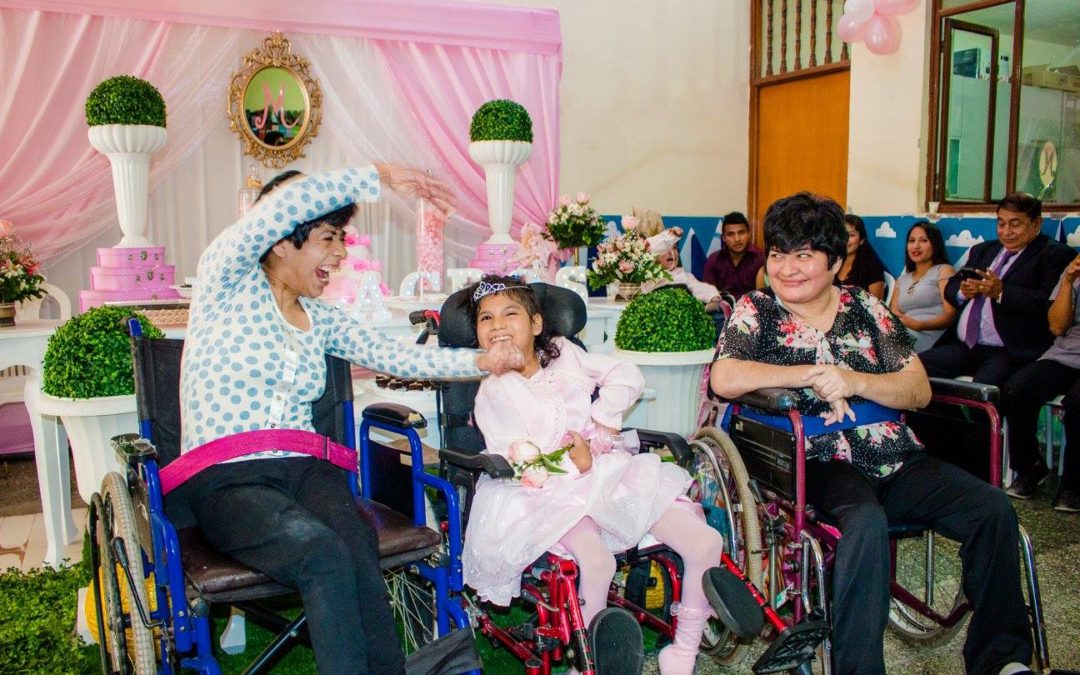Throughout the past year, the Anita Goulden Home, led by its excellent local Committee, has kept up a first-class level of residential care and therapeutic treatment for its disabled residents. This reality has, however, been placed under great strain by events that have depleted the Home’s financial reserves and raised its operating costs for the future.
A one off-payment to long-serving staff, following a legal ruling on working hours of healthcare workers, consumed almost all the reserves that the Home had built on the back of our regular transfers. Fortunately, after implementing the court-ordered change to working hoursof healthcare staff from 48 to 36 hours per week, and making the compensation payment, the Committee reports that the nurses have maintained a good care environment in the Home.
The Home is operated by a Peruvian charitable Association, led by the Committee that was elected to a two-year term of office in October 2023. The Trust has come to know them through regular on-line meetings, and we are greatly impressed by their abilities and their commitment to the Home. They have taken important actions to improve policies and procedures to ensure a sustainable future for the Home, for example, revised protocols for admission of new residents, and elimination of the use of petty cash to avoid creating operational risks. All the internal policies required to make the Home compliant with local regulations are now in place, and security cameras to ensure the safety of residents and staff are in operation.
Since Anita Goulden’s time, the Home had been a sanctuary for abandoned children and young people, many of them with disabilities. Over several years, the nature of the Home has changed. For example, and reflecting Peru’s development as a modern state, regulations eventually barred the Home from housing physically able youngsters together with those with a disability. The Home has progressively become, rather than just a place to live, a specialised treatment centre for children and young people with serious mental and/or physical disabilities resulting from infantile cerebral palsy and who, through poverty and difficult family situations, require residential care. Many of them need intensive nursing care and specialised therapy.
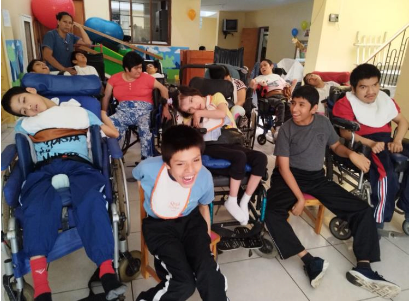
This changed nature of the Home is at the root of higher employment costs of nursing staff, several of whom have worked there for many years. The residents require emotional engagement and love, and the staff that provide this to the high standard required need to be very professional.
Throughout the regulatory action that led to the changed working hours, the local Committee received legal advice from local law firms who, reflecting how well the Home is regarded in the local community, donated time without charge, Through careful financial management, the Committee had accumulated sufficient local reserves to meet the immediate demands for retrospective overtime and holiday pay for the affected healthcare staff without calling on the Trust.
In positive news, the Home saw no interruption this year of its normal routines and activities, which include individualised therapies, recreational outings, and visits by families and medical professionals. The Home has a new full-time Manager, who has settled in well, and the Home’s Social Assistant recently visited all known families of residents with a view to keeping them in touch with their children. The mother of one resident now assists in the Home every Sunday.
The Committee is promoting the Home through social media and digital channels, whereby they hope to increase membership of the charitable association, and thus raise monetary donations, which are difficult to find locally. By sending letters to companies in the city, they have raised donations in kind including, not only supplies and medicines, but a semi-industrial washing machine and a new oven. The Home also benefits from two government programs – the “Vaso de Leche” and the “Pecon” – which supply food such a rice and beans.
Some individual volunteers donate their time, coming in to help feeding the residents, tidying up the front garden, or offering professional services, such as physiotherapy. There is an endocrinologist who is helping the residents with their swallowing, also on a voluntary basis.
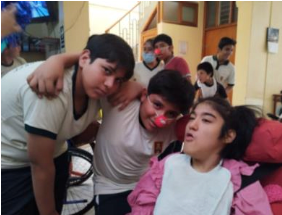
One new admission, a blind child with cerebral palsy, took place during the year. Another young resident, Maria del Carmen, was operated on in June at a local hospital to install a prosthesis to alleviate her constant pain from a pelvic displacement. Since nobody locally was qualified to undertake the operation, it was carried out free of charge by a surgeon who came from Lima for the purpose. She will have follow-up surgery at the nearby San Juan de Dios clinic in the New Year.
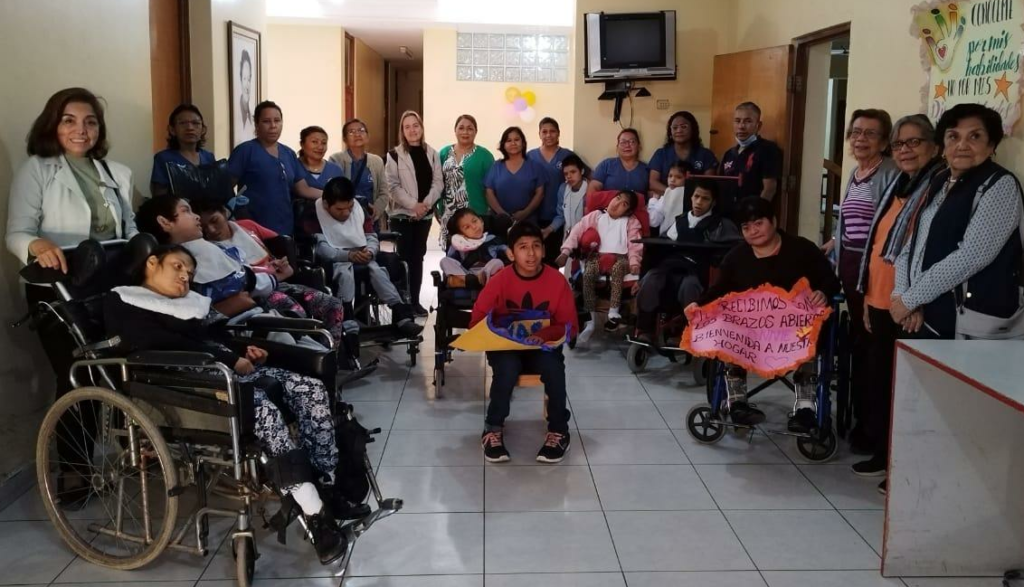
Two of the young residents attend school outside the Home. Due to safety concerns, the Committee decided to change the precarious transportation they were using – adapted motorbikes – for a proper vehicle with a designated driver. They managed to make this change at no additional cost to the Home.
The Committee has undertaken some much-needed building maintenance, notably the installation of a new roof, providing much improved conditions, especially natural light, for its residents. The Trust is grateful to one of its long-established donors, who made a special additional donation to assist with the funding of this.
